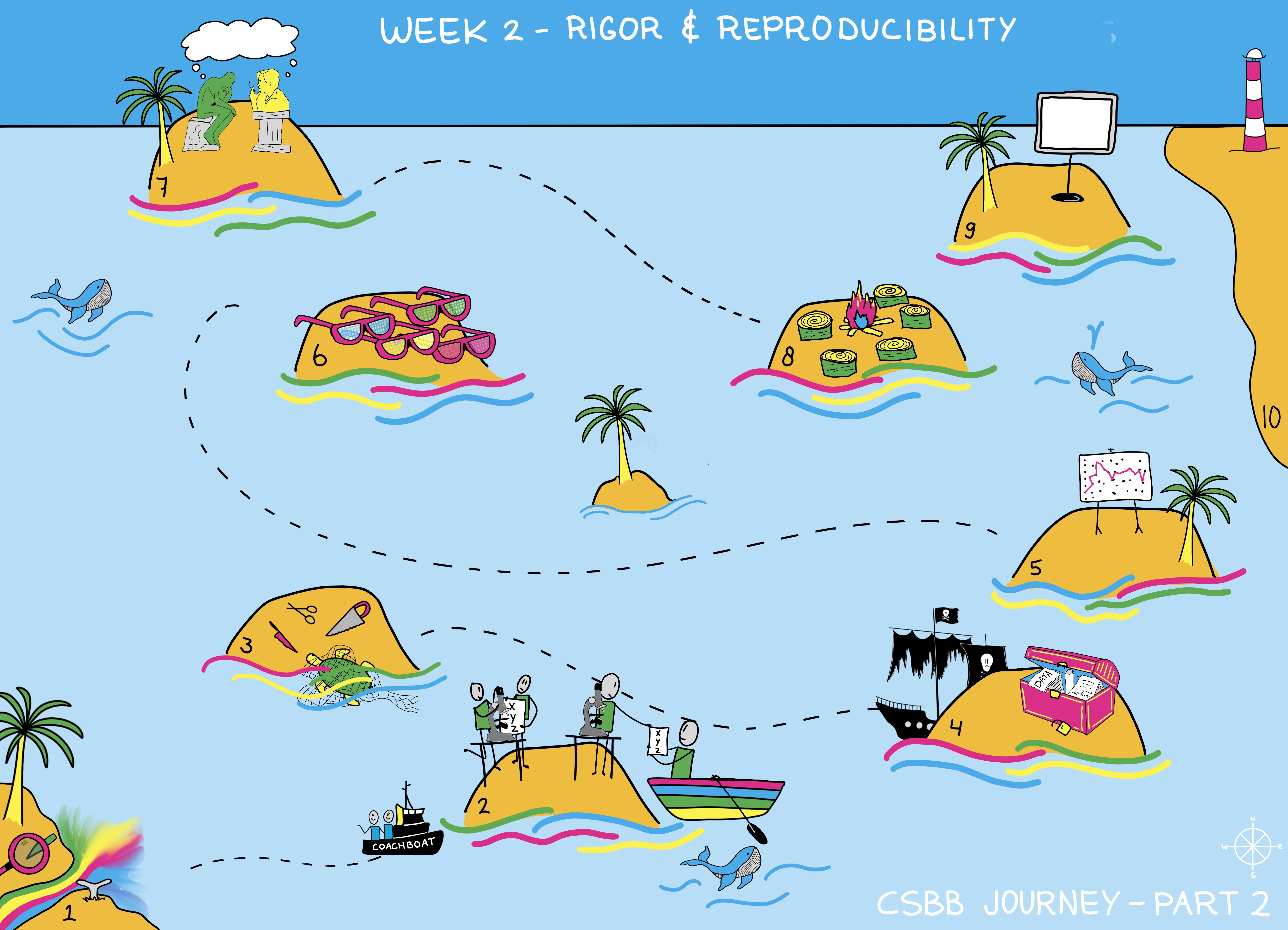
Week 2.2: Can you repeat that?#
Doing something new and getting great results is very exciting! However, the results of your project only “count” if others can carry the same experiments you carried and get the same results you did. This is called reproducibility. Reproducibility is how scientists verify the trustworthiness and accuracy of results. As a researcher it is your responsibility to ensure the reproducibility of your results.
What if you are not able to reproduce your own results? What does it mean? The basic assumption is that if you can’t reproduce your results, you may not entirely understand what you’re doing and what factors are important. So, how can you troubleshoot this situation and solve this reproducibility issue?
This week’s topic is ‘reproducibility’. The schedule includes:
Monday: This week there is no spotlight nor workshop on Monday. This will get you some extra time to get started on your project.
Wednesday:
Workshop: Reproducibility
Workshop: Troubleshooting
Friday:
Friday Symposium
Workshop: Reproducibility#
What are the necessary elements in reproducibility: keeping a good lab journal, writing clear and accurate methods, reading methods accurately and checking assumptions. What are the things necessary to record in your lab journal?
What is “reproducibility”?
How is it used to assess scientific results?
Examples of theories where lack of reproducibility unraveled a published theory.
Why keeping a lab notebook and writing clear methods sections matters.
Some of the surprising variables that can effect reproducibility–lots of examples of this though this is one of my favorites, also an excellent example of critical thinking: Comparison of Trials Using Ivermectin for COVID-19 Between Regions With High and Low Prevalence of Strongyloidiasis: A Meta-analysis | Infectious Diseases | JAMA Network Open | JAMA Network
Key concepts#
Lab journal plan
Exploration of all the things that might affect your results.
Learning goals#
Clear communication of research methods
Understanding the importance of documentation
Collaboration on experiments
Workshop: Troubleshooting#
Troubleshooting is foundational to experimental work: “You try something”. “You figure out it didn’t work the way you wanted”. “You figure out why, or find new things to try” and repeat the process until you get reproducible results that answer your research question (or start a new question).
We all have some troubleshooting skills. In this workshop you will develop further skills and look at the social-emotional side of troubleshooting. You will also learn how to develop collaborative troubleshooting skills as using collaborators can be a great way to troubleshoot.
Key Concepts#
Ways of approaching problems
Keeping track of what you’ve tried
Collaborating to troubleshoot
Identify problem spots
Evaluate variables
What are all the things that could be affecting it
Learning goals#
Collaboration
Research Process
Critical Thinking
Group Activity of the Week#
Develop research strategy for the project—how do you turn a two page proposal into a step-by-step plan?
Identify resources you will need at various stages
Make a plan for how you’ll keep a lab notebook.
Discussion Questions#
How is your project going?
Are you finding there are things you need to change now that you’re doing it?
What areas are you concerned or uncertain about? How will you approach those? Who might have insight to help?
Why does reproducibility matter in science?
What is reproducible enough?
What is your approach to troubleshooting?
Why does explaining the problem to someone else help you solve it?
How does reproducibility and a lab journal help with troubleshooting?
What’s the strangest troubleshooting thing you’ve encountered?
What are things to take into consideration when troubleshooting?
How do you take into account your blind spots?
Weekly Submitted Assignments#
Group#
Summary of how you’ll keep a lab journal and identify the key things to record in your lab journal for your project.
Individual#
Why do you think reproducibility in science matters?
